Although the civil war in Burundi finished many years ago, the press the country gets has not improved much. Guides, travellers' websites and even official statements of many governments discourage from visiting it. Even the guide I had in my pannier advised not to venture beyond Bujumbura and the main road connecting it to Rwanda. Travelling overnight was called a death wish. Actually, if you look at any GDP ranking, Burundi might be found floating very close to the bottom. No wonder it is often called “the poorest country in the world”.
Not satisfied with the idea of turning back east, we had been thinking about DRC and Burundi. After checking online resources, out of those two we picked the latter. It seemed more secure, easier to organize and offered an opportunity to see the huge Lake Tanganyika. So, we were there, just at the doorstep.
We had woken up before a sleepy immigration officer opened the window located a few meters from our tents. Having our passports stamped we turned onto brand new asphalt road and headed towards the border. The Burundian post had been still under construction and in a wooden shed we made each of our wallets 40 USD lighter. That was the scandalous price of the visa, which allowed us to spend only three days in the country.
Day one
Although we had been sure that the asphalt would finish a few meters after the border, it did not. Surprisingly, the new road stretched far into Burundi and we happily cycled with average speed well beyond 20km/h. A good start of the race with time.
The surroundings on the beginning looked simply boring. The land was flat, hot and crowded. But the crowds were incredibly interesting. Unlike we would expect, the citizens of the poorest country welcomed us cheerfully. Kids waved hands, adults did it too after having recovered from a shock caused by a sight of white people on bicycles.
Soon we realized that despite being a Belgian colony in the past, Burundi would give us a chance to talk with people. A few conversations with the locals showed that it was not unusual to find English–speaking persons. Of course French was the most popular foreign language.
Without too many attractions we reached Bujumbura in the afternoon. The objectives were simple: get cash if possible and get out as soon as possible. I started by putting my card into ATMs across the city. Half of them was out of service, the other half did not accept it. I visited a few of the banks to learn that I could get the cash over the counter, paying some fee, but we wanted to do it the right way. However, no one could give us the right directions to a mysterious cash machine, which would work for us.
We had already given up and left the center, when Michał spotted a VISA logo on some sign along the road. Soon we were getting crisp Burundian francs from the wall. Credit cards work, there is Coca-Cola in the shops, so the country is not even half as bad as it was said to be.
We left Bujumbura at the sunset. The capital, however, seamlessly transformed into another town, and another, and another... There was no chance of a wild camping, as there was nothing wild, except maybe for bazaars where we stopped a few times to get fruits. The sight of white people made people gather around and multiply with the speed of bacteria. Leaving such a place meant pushing thorough a crowd of those who had seen but could not believe. I guess we were one of very few wazungu on bicycles there, if not the first.
A young man, sitting on a rack of a bicycle–taxi, started a conversation in fluent English. He was going back home and we instantly asked if he knew about a church that we could camp by. A few minutes later we were standing at the door of a Catholic parish and Dionise, as he was called, started search for someone in charge to let us in.
The priest was unreachable at the moment, so Dionise called the village chief. He arrived quickly in a car and authorized the night guard to open the door and provide camping space for us. As the crowd of people involved left, wishing us a good night, we sat down to eat. When I was trying to clean the stove, which choked on dirty kerosene, the guard – who spoke no word in a language known to us – brought and lit up his own charcoal cooker. We shared the supper with him and sat there with tea, amazed by the hospitality of Burundians.
Day two
Starting early in such surroundings was just impossible. Although we had woken up at the sunrise, the morning talks lasted for a few hours. The priests arrived early, but were busy with preparation for a mass. Dionise also appeared there and helped us with shopping at the local bazaar, reducing the haggling to none. He impressed us with the language skills. Being a student of English, he spoke not only Kirundi and Shakespeare's, but also Swahili and French. It was quite sad to say early goodbye to such a friendly person, but we had to move on.
After just a few kilometers we arrived to the shore of Lake Tanganyika, the huge freshwater body, second only to Bajkal. With crystal clear waters, audible surf and no sight of the other shore it seemed to be a sea. It was inviting.
Not much time had passed before I gave up. The fear of bilharzia, present in almost every lake of Africa, was too weak to keep me off. I just jumped from a huge boulder, only taking the wallet from my pocket beforehand. What a wonderful feeling it was to be completely submerged in cool water! The last time I had done it was half a year ago, on Sinai. And the next will happen not very soon, perhaps on the Swahili coast.
The water was cool and the wind quickly dried my clothes, also making the sun not so bad on that cloudless day. However, the direction was southern and it grew stronger, slowing us down. The road led all the time close to the lake, crossing countless villages, which obviously relied on fishing and oil palm cultivation.
I was wondering how much (or how little) we know about the contents of the lake. While people with huge effort try to keep the remaining land animals alive in Africa, the hydrosphere seems to be somehow neglected. We know about the catastrophes that Nile Perch and Water Hyacinth caused in Lake Victoria, but empty fishing nets pulled out from Kivu seemed to me as a testimony of another silent tragedy.
Here, the Tanganyika Lake has its' own water world, with many endemic species. The huge volume seems to still defend itself, but every village was full of stalls selling tiny Kapentas by weight. And there were many villages... I was finally relieved by a sight of a few huge fishes on sale. If there are big ones, things are not bad perhaps.
Another local food appeared on the markets: peanuts. Roasted or not, they were cheap and provided a lot of energy. Add bread and wonderful fruits, especially mango, and the diet looked great. For a bigger meal we stopped at a nice, stone-laid lakeside church.
There a breakdown happened. A tiny part, as usually, rendered important piece of equipment useless. The leather cup in my stove's pump was torn again. It had already happened once in Uganda, but we managed to repair it by a piece of thread. It had lasted for a month but this time it was over. Fortunately, during the month I invented a backup plan. A few minutes later, using a valve from an old inner tube, I converted Primus Omnifuel into cyclist's variant.
The repairs and cooking lasted for long. Too long. We were very short of the minimum 100km on that day. Pushing forward, we were at only 70km when the African darkness, as usually, fell upon the Earth in a few minutes.
There was not much traffic and we could easily cycle in the dark. The markets in the villages were closing down and in exchange crowds of people emerged to take bath in a roadside ditch. Naked children, covered only in soap bubbles, ran across the road while the mothers rinsed their siblings. Such is the bath time in a place where the only running water is an irrigation ditch.
We finally reached some less populated parts in the south of the country. Having just hit the planned 100km, we camped on a beach, hoping that no one would discover us before the dawn.
Day three
We had only some 60-70km left but a massive uphill awaiting us. The coastal road finished there and the border post was located inland, some 750m higher. There was a lot of sweat and work and in the early afternoon we found ourselves again in some dusty town, mercilessly fried by the sun.
The border post was actually located there, still far from the border. Soon the exit stamps landed in our passports and we could proceed with relaxed pace, as the bureaucratic requirements were fulfilled.
The last surprise of Burundi was a village party. As the country had celebrated its' 50th anniversary of independence just a week ago, some of the ceremonies were still going on. A group of cheerful and obviously drunk villagers led us to a place where drums could be heard. First we noticed a group of policemen, armed with Kalashnikovs and totally wasted with banana beer served from a bucket. Then an invitation came and we sat beside the village chief.
A group of dancers performed on the grass. Although they wore synthetic t-shirs wit a logo of East Asian electronics manufacturer, the dance still seemed to keep with local traditions. From the group performers were coming in pairs before the chief and seemed to be very serious in their attempts to impress him with their skills, often impaired by the beer.
The coming night and the amount of alcohol consumed there, however, called for a goodbye. We left the village and in the dark crossed some new steep hills before coming to the border. The Tanzanian officers provided us with lawn space and water with no problems, also sharing a few tips about the further road.
It was sad to leave Burundi after only three days. Despite all the warnings we did not feel unsafe even for a moment. While the country really looks poor, the people do not seem to be unhappy. The amount of hospitality and friendliness we experienced during our short visit, it makes me write only two words: Go there!

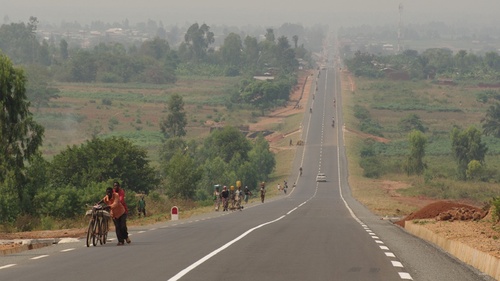
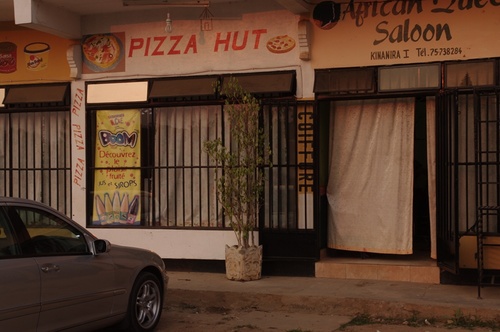
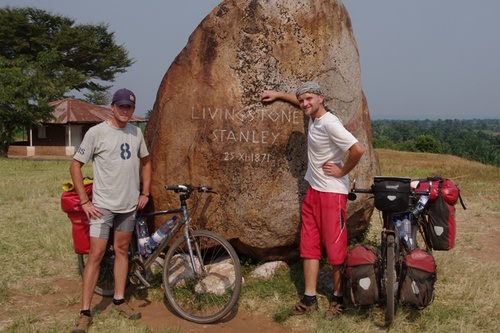
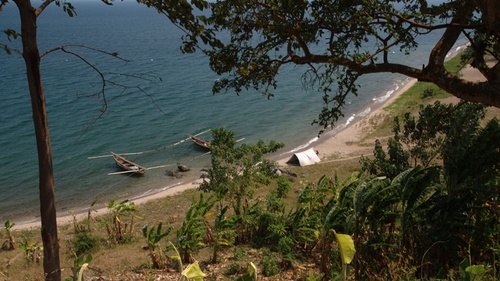
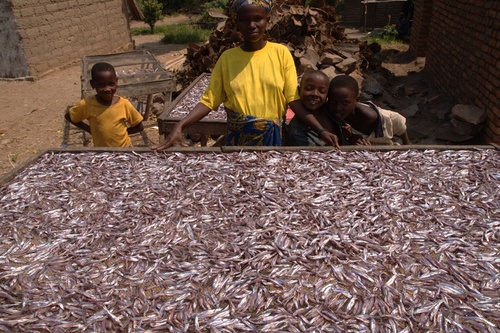
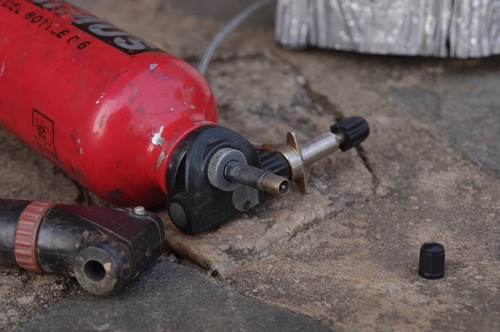
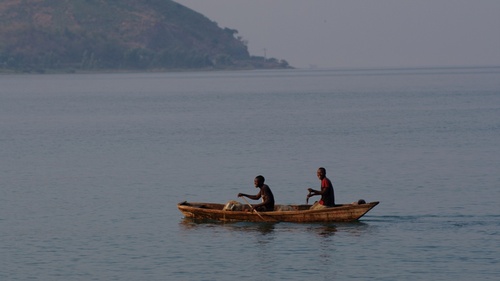
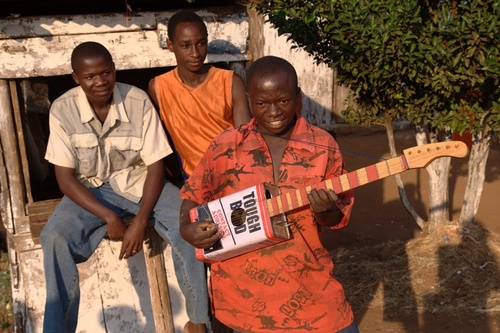
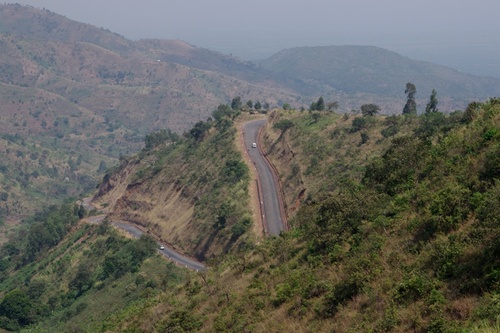
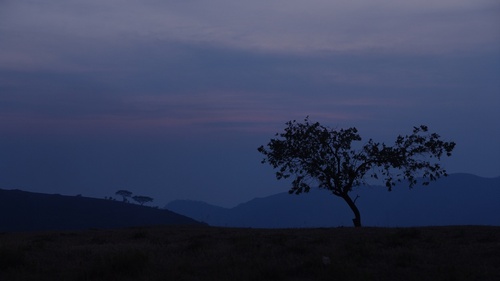
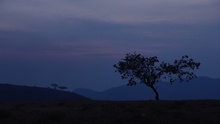
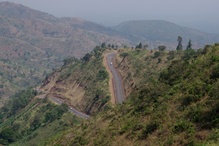
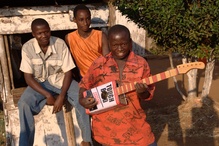
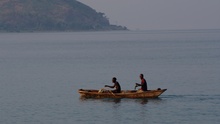
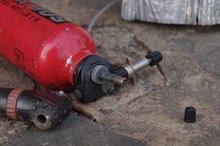
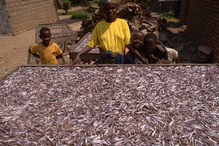
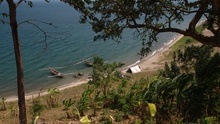
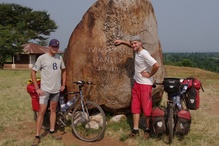
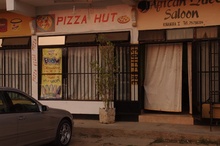
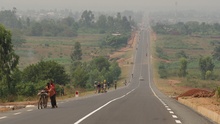
Comments:
mama
robb
jakie to prawdziwe :))))
pozdrówki. widzę, ze dobrze wam idzie!
R+A
Wilk
Z tym kapturkiem jeszcze da się coś zrobić, ale zdarzyło mi się też, że puszczały uszczelki u góry, wtedy już pozamiatane.